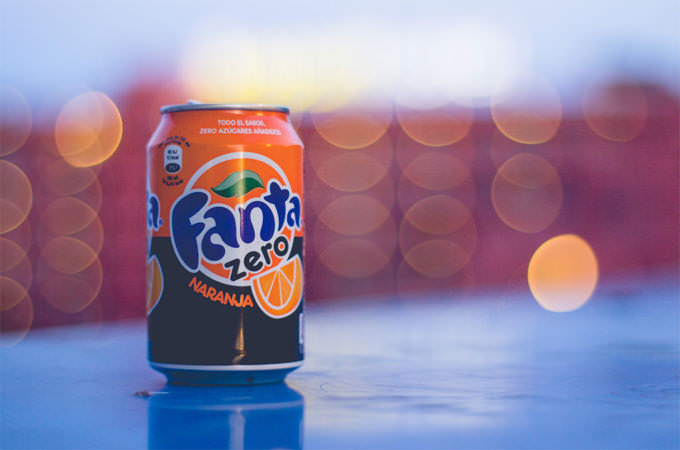
Food scandals can be nightmarish for the harm they inflict as well as the fear they cause. People depend, of course, on safe food, but scandals happen time and again. The following are some of the biggest food-related scandals to shake the world. They’ve caused many people to look at food differently forevermore.
1. Fanta
Many people are used to seeing bottles of Fanta at their local grocery store. Yet this brand has a decidedly scandalous history.
Unfortunately for Coca-Cola, the company couldn’t sell its cola syrup to Germany because of a little conflict known as World War II.
The company’s German branch was unable to supply thirsty Nazis with the world’s favorite soda pop. So, the company’s German headquarters created a new beverage and called it Fanta.
While the German-based group wanted to stay afloat and keep producing soft drinks in spite of trade embargos, they probably weren’t doing anything too scandalous by continuing to make beverages.
The scandal blew up, however, after the war when Coca-Cola happily took over the profits made from selling Fanta to Germans – Nazis included. Many Westerners were dismayed about this conflict of interest and questioned the company’s loyalty.
Coca-Cola also maintained the Fanta brand and continued to make Fanta products to sell. The scandal, however, seemed to suggest that the war was a minor inconvenience and its conclusion merely meant a return back to business as usual.
Today there are more than ninety flavors of Fanta world-wide. Apparently, people got over the scandal. Coca-Cola remains the most popular soft drink in the world.

2. Mad Cow Disease
During the late 1980s, the British had a horrible beef scandal on their hands. Cows had been fed bone meal infected with bovine spongiform encephalopathy, also known as mad cow disease.
The fatal neurodegenerative disease infected humans and 166 people in the UK died having contracted a form of the disease from having eaten the infected beef.
The epidemic and tainted beef caused many countries to put an outright ban on British beef.
While the cattle have been culled, the fear in Britain persists as the disease can harbor inside humans for months and even years before it declares its presence.
The disease is a particularly horrifying one as it affects the brain. The disease causes neurodegeneration – typically quite rapid – resulting in memory loss, dementia, balance and coordination dysfunction, seizures, etc…
The disease appears to leave “holes” in the brain and there is no cure. Most people succumb within months of their initial symptoms. Others have survived as long as two years; however, this disease and its variants are invariably fatal.
While mad cow disease was an unprecedented food scandal for the UK, it also had many people around the world vowing to cut down or cut out beef from their diets. The panic truly became a world-wide problem and many people have yet to eye a cheeseburger the same way.
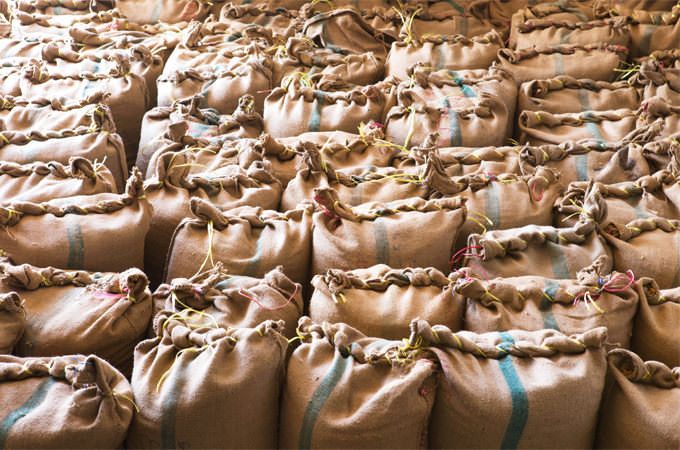
3. Iraq Poison Grain Disaster
A disastrous case of poisoning occurred primarily as the result of language barriers. Mexico and the U.S. sent some grain to Iraq back in 1971.
This grain was treated with a fungicide containing methylmercury. Though the grain was not sent to the country for people to ingest, it invariably got mixed up as foreign-language labels were not properly understood.
The grain was ingested by people and people got sick. In fact, the official death toll stood at 650, but some estimates suggest that the real total is likely double that figure.
The disaster led to tightened regulations regarding labeling and the handling and dispersal of mercury-treated grain. Since warnings on the grain packages were in English or Mexican, many people had no idea about the dangers associated with the grain.
Many, having already planted their grain, wound up eating the tainted grain. Most people began to notice symptoms of illness in less than forty days of ingesting the grain. Death resulted because of the failure of the central nervous system.
Eventually the army had to go in and dispose of the grain. The government declared that anybody discovered selling the grain would be punished by death. The disaster remains one of the world’s worst food poisoning scandals.
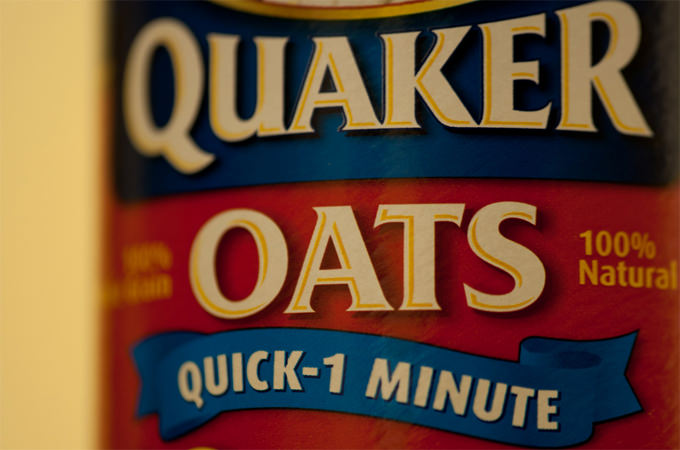
4. Radioactive Oatmeal (Quaker Oats)
Between 1946 and 1953, the U.S. Atomic Energy Commission and Quaker Oats fed 73 mentally disabled children radioactive oatmeal to, in essence, study its effects.
Whatever their fear might have been regarding nuclear war and its effects, they somehow justified feeding radioactive material to a vulnerable segment of children.
Lawsuits were eventually filed, but not settled until 1998. Quaker Oats insisted that the level of radiation was comparable to what a person might commonly be exposed to in a year.
Even so, the judgment ruled that these children’s civil rights were violated. What is amazing is that Quaker Oats managed to stay in business. An immense scandal, the company managed to pay its losses and move on.
Many people will, at least, be gratified to know that the boys were not discovered to have suffered any lasting problems having eaten the oatmeal.
That might make one’s morning oatmeal go down a bit better. Still, the thought of using children as guinea pigs is abhorrent to people and it is vital no companies ever make such gross oversteps again.
Moreover, the children were simply told they were joining science club – a deceptive assertion if ever there was. If this scandal were to occur today, there would likely be criminal prosecutions.

5. Beech-Nut Fake Apple Juice
Babies need vitamins and minerals to help them grow and develop. Most people know that! It seems that Beech-Nut, however, thought that they could cut down on apple nutrients and even cut them out entirely when making their apple juice for babies.
Perhaps an executive with no children surmised that the babies will never know! Besides, if you load it up with enough corn syrup, the kids will lap it up.
Back in the 1980s, Beech-nut was fined millions for selling their fake apple juice. It became one of the biggest food scandals of the century.
The fine was one of the largest ever imposed by the Food and Drug Administration. The company breeched the trust of all of their customers when they marketed their juice as “100% apple juice.” In reality, the juice was made from beet sugar, corn sugar, and other ingredients. Unfortunately, there was little to no apples in the mix.
Even though the juice contained “safe” ingredients, it was, in effect, a bold-faced lie to call their product apple juice when it was actually beet-sugar juice. While hard to believe, this company is still in business. Would you buy their food products today? Apparently enough people do as they’re still making sales.
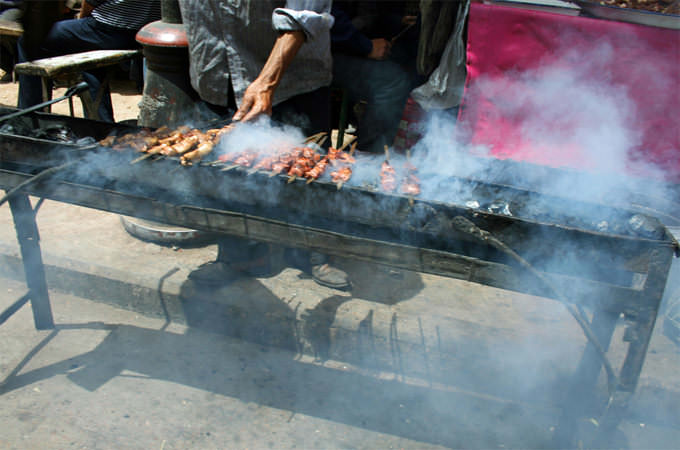
6. Chinese Lamb Substitution
In China, anything goes as far as meat is concerned. The problem occurs when deception enters the mix.
For instance, it’s unethical to tell someone they are eating lamb when it’s actually the meat of a rat. That’s just what happened in China, the motherland of food scandals.
Just last year in Eastern China, the government caught a ring of meat vendors selling rat, mink, and even fox, but calling it mutton.
According to reports, sixty-three people were arrested. Many were outraged, of course. Imagine you’re traveling in Shanghai and have a taste for lamb chops.
To think you might be getting rat! The government has been trying to crack down on food safety crime. This was a big bust, but it makes one wonder if the government caught all the culprits.
It isn’t surprising that many people are concerned about the safety in China when it comes to food. Though scandals can happen – and do happen – everywhere, it seems that China has more than its fair share.
On the other hand, many Chinese people happily eat rat and fox. These meats are legal there. However, it isn’t legal to sell them as mutton – especially for a profit!
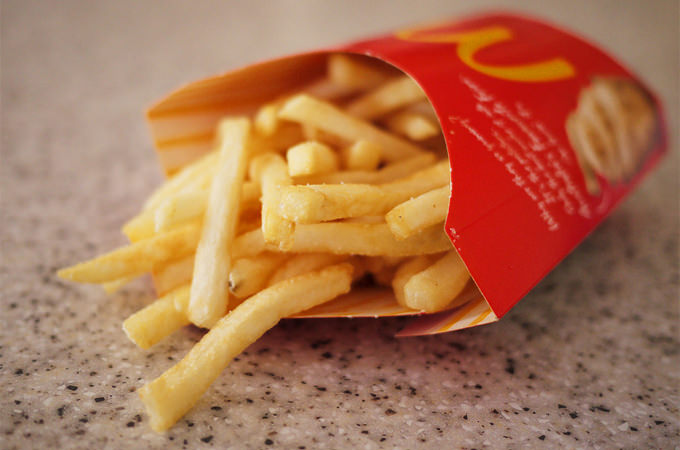
7. Beef-Flavored Fries
If you’re a vegetarian and somehow wander into a McDonald’s you won’t have a large selection to choose from.
For years, however, vegetarians could enjoy the fries. Well, at least they thought they could. McDonalds claimed that its world-famous fries were fried in pure vegetable oil.
It was discovered, however, that beef flavoring was added to the oil used for the fries and helped contribute to their tastiness.
After the scandal broke, McDonald’s claimed that it never marketed its fries and hash browns as vegetarian, but the damage had been done.
Fast food scandals are common enough, but this one shook the industry to the core. McDonald’s fries are, in many ways, the epitome of fast food – the majestic cornerstone of the industry and of the fast food giant.
As a result of the scandal, McDonald’s donated $10 million to Hindu groups and others for their labeling faux pas. Many Hindus hold that the cow is sacred and would never dream of eating beef in any form. Vegetarians and non-beef eaters were outraged over the scandal.
Hardcore fans of the chain, however, continued to support McDonald’s and their tasty fries. It’s still the biggest fast food chain on the planet regardless of their anti-vegetarian menu.
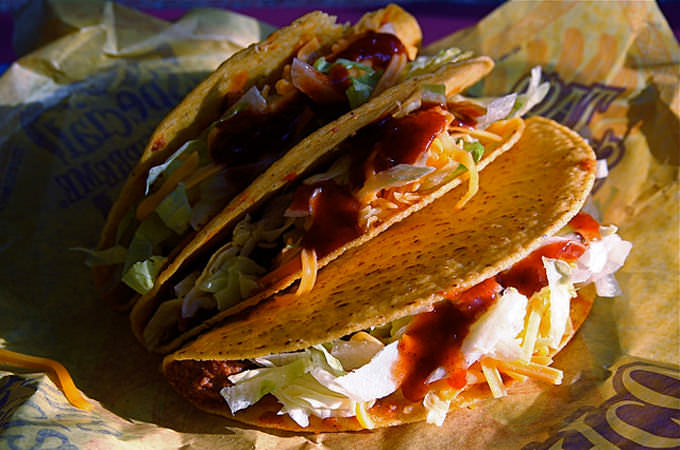
8. Where’s the Meat – Taco Bell
When you order a beef taco, you just naturally assume that you’re eating beef, right? You might admit to yourself that, tasty as it is, it likely isn’t the best quality meat.
In Taco Bell’s case, the meat wasn’t entirely meat. In fact, a scandal broke over the fact that Taco Bell filled its tacos with beef that was only 35% beef. So what else was it?
Just a few years ago, the chain’s beef was tested and the results were shocking. A California resident sued the chain – not for money – but for dishonesty.
The suit called for the chain to be honest about what it was using to replace its beef content. To be fair, it really shouldn’t have claimed the meat was beef when it was merely a mixture of ingredients that included beef.
The chain refuted the claim and stated that their mix employed 88% beef. For the last few years, even this 88% claim has haunted customers. What’s in the rest of the mix.
Recently, the company did acknowledge other ingredients and there was nothing surprising – nothing scandalous. There are oats and other items one might expect from processed foods. It appears that the 35% lawsuit was overstated – a scandal in itself and one that has haunted the Taco Bell brand.
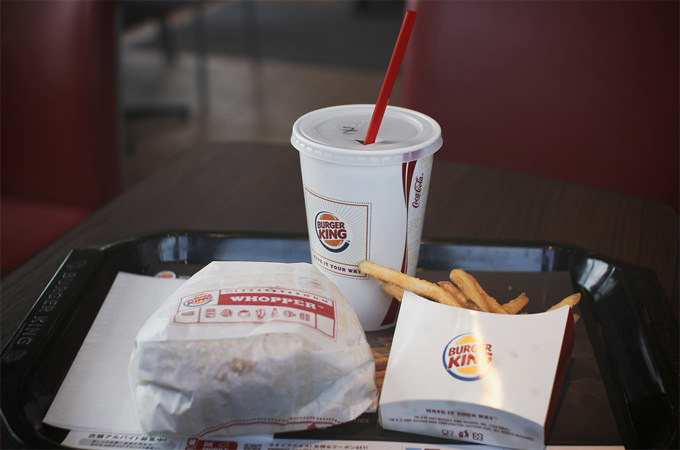
9. Burger King and the Neigh-Sayers
Burger King was apparently horsing around in the UK when it used horse meat to concoct its whoppers.
While horse meat is consumed in nations like Belgium and even France, it’s definitely a no-no in Great Britain. In spite of denials, Burger King finally admitted in 2013 that it had been frying up whoppers made with horse meat.
Burger King blamed its supplier – particularly a supplier in Poland – for the horse contaminated meat. It claimed to be affronted.
Yet the British rightfully insisted that the purveyor of beef patties should know what’s going into its products. The news rocked the UK fast food community. Moreover, because Burger King is an international brand, many other nations began to question the contents of their Whoppers too.
The fast food industry has had some major shakeups, but these scandals involving meat replacements have really shocked people. It’s also leading many people to lobby for more transparency.
People have a right to know what they are eating. They also need to find out if companies are lying to them about the foods they consume. Burger King may not be the only chain that has been accused of horsing around with meat content, but they have certainly taken a major PR hit over the event in the UK.
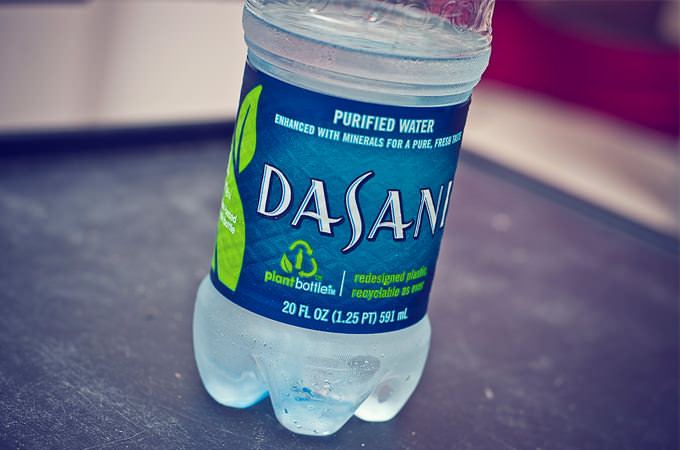
10. Bottled Tap Water
Many people buy bottled water as an alternative to tap water. So when a company decides to conveniently fill its bottles with tap water, there’s bound to be trouble. It seems that selling water is a tricky business these days.
Back in 2004, Coca-Cola’s bottled water product, Dasani, was discovered to be nothing more than purified tap water.
It didn’t originate from a source spring. Many people found this shocking, but the practice is relatively common.Even so, many people remain outraged at the idea of drinking bottled tap water.
After all, they could just as easily bottle their own for less. To make matters worse, Coke claimed that it used a highly advanced purification system when that system was, in fact, quite humble and used by other far inferior brands.
For people who are looking for pure and natural water taken right from the spring, Dasani is not the product for them. Though it is purified water, it just isn’t spring water.
In fact, since tap water undergoes purification, it’s difficult to understand how Dasani is doing anything differently. What’s to stop them from filling their bottles with straight tap water? After all, tap water is legal. It makes one really have to stop and question the very water they drink.

